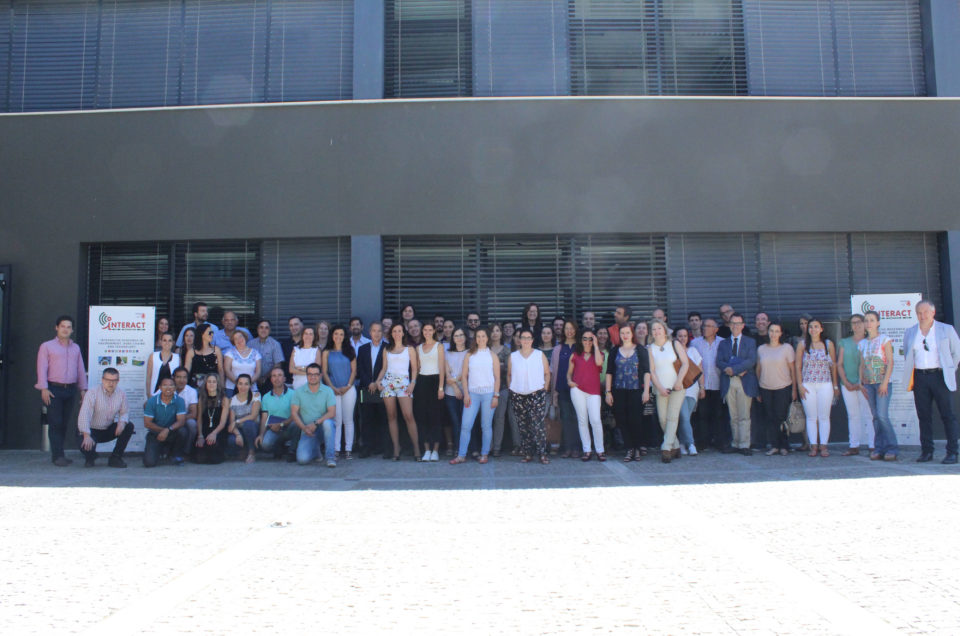120 researchers united in the INTERACT project

The University of Tras-os-Montes and Alto Douro (UTAD) held on 12 and 13 July the 2ªs project Journeys INTERACT, an initiative intended to give visibility to the work of 120 researchers throughout the first year of the project, which covers multidisciplinary areas, from the socio-economics of forestry sciences, chemistry, ecology, geology, molecular biology or veterinary science.
One of the big bets is clearly preparing the agroforestry sector to climate change and predict future alternative scenarios, which also is one of the most important challenges that currently pose to the country. Hence, among the purposes of the project is to create a map of structural risk of fire leading to predictions when more susceptible to fires, combining structural risk with meteorological factors.
With a budget of four million euros, the project proposes to open new doors for the future of a region that continues with immense untapped resources. Researchers are thus wagered in determining the opportunities and production potential based on the local economy, particularly in the field of agri-food based resources in animal production, vegetables, fruits, olives, nuts, wine, forest and native flora, medicinal plants, among many others.
As recognized by its coordinator, Rui Cortes, it is a research project “that represents the largest researchers interface of different fields”, and “the great adventure was to launch a project that usually brings together numerous researchers back to back.”
On the first day of the conference, held in the auditorium of the Laboratory of UTAD blocks, place had several dozen presentations, highlighting the work of the research fellows involved in the project. The second day of the work, which took place in the auditorium of Regia Douro Park, was more outward-facing, targeting in particular the stakeholders, for the purpose of research must go hand in hand with the transfer of knowledge and technology in particular for the business community.
Intervened Rui Cortes, principal investigator of the project, Ana Barros, director of CITAB (one of the UTAD research centers with greater involvement in it), and, in more detail, those responsible for the three project research lines: “Innovation for Agrifood Chains Sustainable “(ISAC),” Bio-economy and Sustainability “(BEST) and” Sustainable Viticulture and Wine Production “(VitalyWine). The first Henry Trinity detailed five activities that its line includes (animal production, fruit, olive, bioactive plant compounds and environmental impacts). This was followed by Fernando Pacheco, responsible for BEST line, to expose its four tasks: modeling of aquatic ecosystems, terrestrial ecosystems and impact of climate change, enhancement of agro-products and bio-economy in the perception of consumers and economic operators. Finally, Moutinho Pereira investigator referred in detail to five activities which coordinates the area of the row of the vineyard and the wine (soil biodiversity, stress climate change, grapes, wine industry, precision, recovery of residues from winemaking industry) highlighting the multidisciplinary character of measures being considered to promote the sustainability of viticulture in the current context of climate change.

























